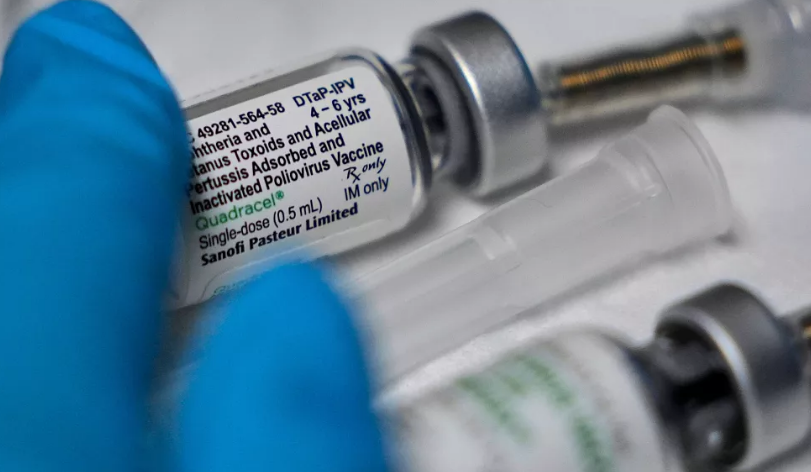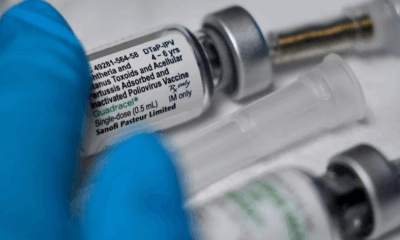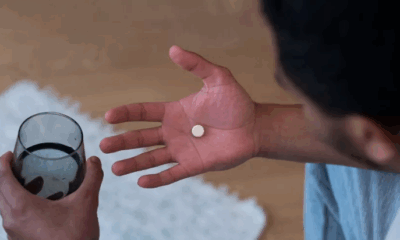Health
New Drug Shows Promise in Treating Alzheimer’s Symptoms in Mice
A compound derived from common herbs has shown promising results in improving memory and reducing harmful brain protein build-ups in mice, potentially paving the way for new Alzheimer’s treatments.
Breakthrough Study on Memory Enhancement
Researchers from The Scripps Research Institute in the United States have successfully tested a derivative of carnosic acid, a molecule found in rosemary and sage, for its potential in treating Alzheimer’s disease. Their findings, published in the journal Antioxidants, suggest that the compound, called diAcCA, could play a crucial role in combating cognitive decline.
In their study, mice genetically modified to exhibit Alzheimer’s-like symptoms were treated with diAcCA for three months. The results were striking: the mice demonstrated significant improvements in learning and memory, along with an increase in synapses—the vital junctions where neurons communicate. Since synapse loss is strongly linked to cognitive decline, these findings indicate a potential breakthrough in Alzheimer’s research.
Reduction of Alzheimer’s Hallmarks
Beyond cognitive improvements, the treated mice exhibited a reduction in amyloid plaques and tau tangles—two harmful proteins associated with Alzheimer’s. These protein accumulations are key indicators of the disease in humans and contribute to the progressive cognitive deterioration seen in patients.
Professor Stuart Lipton, a senior author of the study, highlighted the dual benefits of diAcCA, stating, “By combating inflammation and oxidative stress, we actually increased the number of synapses in the brain. We also reduced the levels of misfolded or aggregated proteins such as phosphorylated tau and amyloid-β, which are known biomarkers of Alzheimer’s disease.”
An Innovative Approach with Antioxidant Properties
Carnosic acid, the parent molecule of diAcCA, is known for its antioxidant and anti-inflammatory properties. However, it degrades rapidly, making it difficult to use in medical applications. The researchers overcame this limitation by developing diAcCA, a more stable form of the compound that can be taken orally and converted into carnosic acid in the stomach before entering the bloodstream.
According to the study, the amount of the active compound in the blood of treated mice was 20% higher compared to traditional carnosic acid ingestion, suggesting greater efficacy. “We did multiple different tests of memory, and they were all improved with the drug,” Lipton noted. “It didn’t just slow down the decline; it improved virtually back to normal.”
Potential Implications for Alzheimer’s Treatment
Alzheimer’s disease is the most common form of dementia, accounting for 70% of cases. Currently affecting around 7 million people across Europe, this number is expected to double to 14 million by 2030 due to the ageing population.
With promising preclinical results, researchers hope that diAcCA could lead to a viable treatment for Alzheimer’s in humans. The next steps will involve further studies to confirm its effectiveness and safety before progressing to human trials. If successful, this research could mark a significant milestone in the fight against neurodegenerative diseases.
Health
Papua New Guinea Launches Emergency Polio Response After New Cases Detected

Health authorities in Papua New Guinea have launched an urgent national vaccination campaign following the detection of two polio cases in children, marking the country’s first confirmed outbreak of the virus since 2018.
The Ministry of Health confirmed this week that poliovirus was found in two otherwise healthy children during routine screenings. Subsequent testing of sewage samples in Lae, the country’s second-largest city, verified that the virus is circulating in the community.
Health Minister Elias Kapavore described the situation as “serious but manageable” and urged swift action. “We’ve dealt with this before and know what works,” he said in a public statement, referring to a previous outbreak in 2018 that resulted in 26 cases of paralysis.
Although Papua New Guinea was declared polio-free in 2000, the recent cases underscore the country’s vulnerability due to persistently low vaccination rates among children. Polio, a highly contagious viral disease, primarily affects children under five and can lead to irreversible paralysis or death in severe cases. The disease has been largely eradicated globally, with only a few endemic regions remaining, such as Afghanistan and Pakistan.
The United Nations Children’s Fund (UNICEF) is working closely with the government to support the emergency vaccination drive. “While the focus right now is on stopping this outbreak, we must take this opportunity to boost routine immunisation to 90 per cent and protect children long-term,” said Dr Veera Mendonca, UNICEF’s representative in Papua New Guinea.
Mendonca emphasised that a long-term strategy to raise routine immunisation coverage is essential to prevent future outbreaks. UNICEF is also assisting in disease surveillance and public education efforts to raise awareness of the risks posed by polio and the importance of vaccination.
The outbreak response will target communities across the country, with particular focus on areas with the lowest immunisation coverage. Health officials are urging parents to ensure their children receive the polio vaccine, which remains the only effective way to prevent infection.
With a population of nearly 12 million and significant logistical challenges in remote areas, ensuring high vaccination coverage will be a complex task. However, authorities remain confident in their ability to contain the outbreak with coordinated action and international support.
Health
Healthy Diet May Delay Onset of Menstruation, Study Finds

A healthy diet may help delay the onset of menstruation in young girls, potentially reducing their risk of several health issues later in life, according to new research published in the journal Human Reproduction.
The study, conducted by researchers at the Fred Hutchinson Cancer Center in the U.S., followed over 7,500 girls between the ages of 9 and 14 to explore the link between dietary habits and the timing of their first menstrual periods. Girls who adhered to the healthiest diets were found to be 16% less likely to experience early menstruation compared to those with the poorest dietary habits.
In contrast, girls who consumed the most inflammatory foods — such as processed meats, sugary drinks, and refined carbohydrates — were 15% more likely to begin menstruating at an earlier age. These results were independent of body size, reinforcing the impact of diet quality regardless of a child’s weight or height.
“These findings demonstrate the importance of a healthy diet regardless of body size,” said Dr. Holly Harris, lead author of the study and associate professor at Fred Hutchinson Cancer Center. “This is particularly relevant as early menstruation has been associated with long-term health risks including obesity, type 2 diabetes, cardiovascular disease, and breast cancer.”
Typically, girls begin puberty between the ages of 8 and 13, with menstruation occurring roughly two years after breast development. However, a trend toward earlier onset of puberty has raised concerns among health professionals, especially given its links to chronic illnesses in adulthood.
While the study highlights a possible role for diet in influencing menstrual timing, some experts have cautioned against drawing firm conclusions. Dr. Imogen Roger, a research fellow at Brighton and Sussex Medical School, noted that the data may reflect “reverse causation” — suggesting that the timing of puberty itself might influence dietary choices, rather than the reverse.
“Diet was assessed close to the time of menarche for many of the girls,” Roger told Euronews Health. “We know that diet quality can decline during adolescence, so the association may not be entirely one-way.”
Nonetheless, researchers agree that ensuring children have access to nutritious foods — particularly during the crucial developmental window around puberty — is vital. Harris emphasized the importance of school meal programmes grounded in evidence-based nutrition.
“This research reinforces the need for equitable access to healthy meals for all children and adolescents, especially through school-based initiatives,” she said.
Health
Europe Pays Less for Medicines Than the U.S., but Prices Still Vary Widely by Country
-

 Business12 months ago
Business12 months agoSaudi Arabia’s Model for Sustainable Aviation Practices
-

 Business12 months ago
Business12 months agoRecent Developments in Small Business Taxes
-

 Politics12 months ago
Politics12 months agoWho was Ebrahim Raisi and his status in Iranian Politics?
-

 Business10 months ago
Business10 months agoCarrectly: Revolutionizing Car Care in Chicago
-

 Business11 months ago
Business11 months agoSaudi Arabia: Foreign Direct Investment Rises by 5.6% in Q1
-

 Technology12 months ago
Technology12 months agoComparing Apple Vision Pro and Meta Quest 3
-

 Politics12 months ago
Politics12 months agoIndonesia and Malaysia Call for Israel’s Compliance with ICJ Ruling on Gaza Offensive
-

 Sports9 months ago
Sports9 months agoKeely Hodgkinson Wins Britain’s First Athletics Gold at Paris Olympics in 800m




























